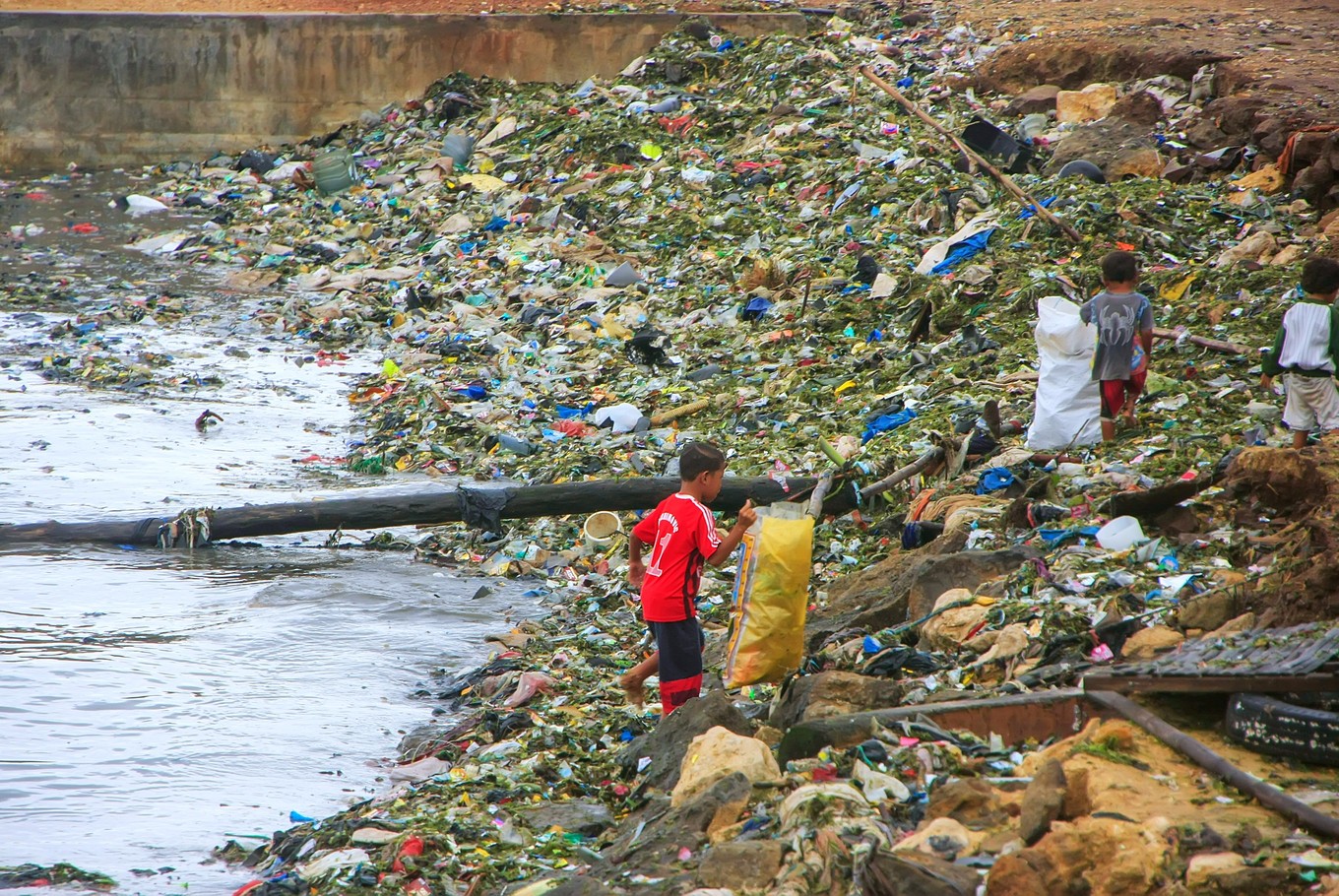Popular Reads
Top Results
Can't find what you're looking for?
View all search resultsPopular Reads
Top Results
Can't find what you're looking for?
View all search resultsChoking our marine habitat with plastic waste
A discussion panel on marine debris highlights the high cost of excessive plastic consumption.
Change text size
Gift Premium Articles
to Anyone
M
ost of us living in this industrialized world might find it very difficult to let go of our dependence on plastic packages. Without realizing it, we create a terrifying amount of plastic debris that makes its way to the ocean.
Isn’t it ironic that in the end, this dependence means that we are literally eating the plastic waste we are producing?
According to data from researcher Jenna R. Jambeck in 2015, Indonesia ranked second in the list of the world’s biggest plastic waste producers with 187.2 million tons of plastic trash, after China with 262.9 million tons.
According to a professor of marine sciences in the fisheries and maritime school of Hasanuddin University in Makassar, South Sulawesi, Akbar Tahir, the industrialized society has found it increasingly difficult to end the consumption of plastic packaging.
“The [quantity of ] plastic packaging consumption, meanwhile, has grown massively since the 1970s,” Akbar explained during a discussion panel called Combating Marine Debris recently at the @america cultural center in the Pacific Place shopping mall, South Jakarta.
The discussion also featured the operational director of biodegradable technology firm PT Harapan Interaksi Swadaya, Eman Suryana, Eco Heroes Flores activist Marta Muslin and the regent of the Thousand Islands region in Jakarta, Budi Utomo. The discussion was opened by US Ambassador to Indonesia Joseph Donovan and moderated by CNN Indonesia senior editor Aditya Heru.
Eman said plastic packaging played a role in the food industry by extending the value chain from farmers to consumers with its role to preserve food ingredients.
Read also: Yoga pants, cozy clothes may be key source of sea pollution
However, plastic waste becomes a problem because it only decomposes with great difficulty.
“When plastic enters water, it becomes even more difficult for it to decompose and it takes about 400 years or so to decompose into tiny nano-sized particles,” Akbar explained.
“The dissolution of plastic is accelerated by ultraviolet rays and high temperatures and that is available only in shallow water. Therefore, once plastic sinks into the deeper part of the water, it becomes even more impossible to decompose,” the professor continued.
According to Akbar, these remnants of plastic packaging are now affecting almost all elements of the marine food chain, from small fish like anchovies to big mammals like whales.
“Plastic particles look exactly like plankton, particularly in terms of their color and size. This is why fish eat these particles. The toxins produced by the particles, in turn, are being absorbed into the flesh of the fish,” Akbar explained.
Discussion moderator Aditya seemed to highlight this irony when he questioned the audience at the start of the discussion: “How many of you have eaten fish?” Almost everybody raised their hands.
Read also: Coral bleaching and why we are the ones to blame
The same response came for his next question, when he asked participants how many had eaten instant noodles. Then, when he asked the audience how many of them had eaten the plastic packaging of instant noodles, most participants looked puzzled and were hesitant to raise their hands.
Plastic is an endocrine disrupting chemical (EDC). They are mostly artificial substances that intervene with the human hormonal system. According to the World Health Organization, EDCs are also found in pesticides, metals, additives, or contaminants in food and personal care products.
EDCs have been suspected of being associated with altered reproductive functions in males and females, increased breast cancer risks, abnormal growth patterns and neurodevelopmental delays in children, as well as changes in immune functions.
The fact that our plastic waste also chokes the marine ecosystem to death should be taken into account.
Budi Utomo, for instance, said that an average of 6 to 10 tons of plastic waste was produced almost daily in the Thousand Islands’ ocean territory and it had recently caused a massive number of deaths among fish populations.
“The plastic waste has poisoned the water, making it difficult for fish to breathe properly,” Budi told the seminar.
The effort to reduce and recycle plastic waste, unfortunately, has been quite difficult in Indonesia because of a lack of awareness and incentives to do so.
According to Eman, in Indonesia only 9.47 percent of plastic waste is being recycled. On average, the percentage of plastic waste recycled globally is about 15 percent.
Read also: Jakarta expects 1,000 RW to establish waste banks
Meanwhile, the manufacturing of biodegradable plastic packaging also requires 300 to 500 percent more energy than that of regular plastic packaging.
As an activist and diving instructor, Marta has called on everyone to take small actions in an attempt to reduce plastic use. She, for example, has initiated a community movement among local dive masters to regularly pick up trash in the Labuan Bajo area of East Nusa Tenggara (NTT).
She has also initiated a program called “Bring Your Own Bottle” to encourage students to refrain from using disposable mineral water bottles by bringing their own tumblers instead. She is also active on indonesianwaste.org, a platform to address the plastic waste problem by creating a forum for all relevant stakeholders.
A digital game called Combating Marine Debris, designed to raise further awareness about the issue, is also currently being developed and is to be available through GooglePlay.











